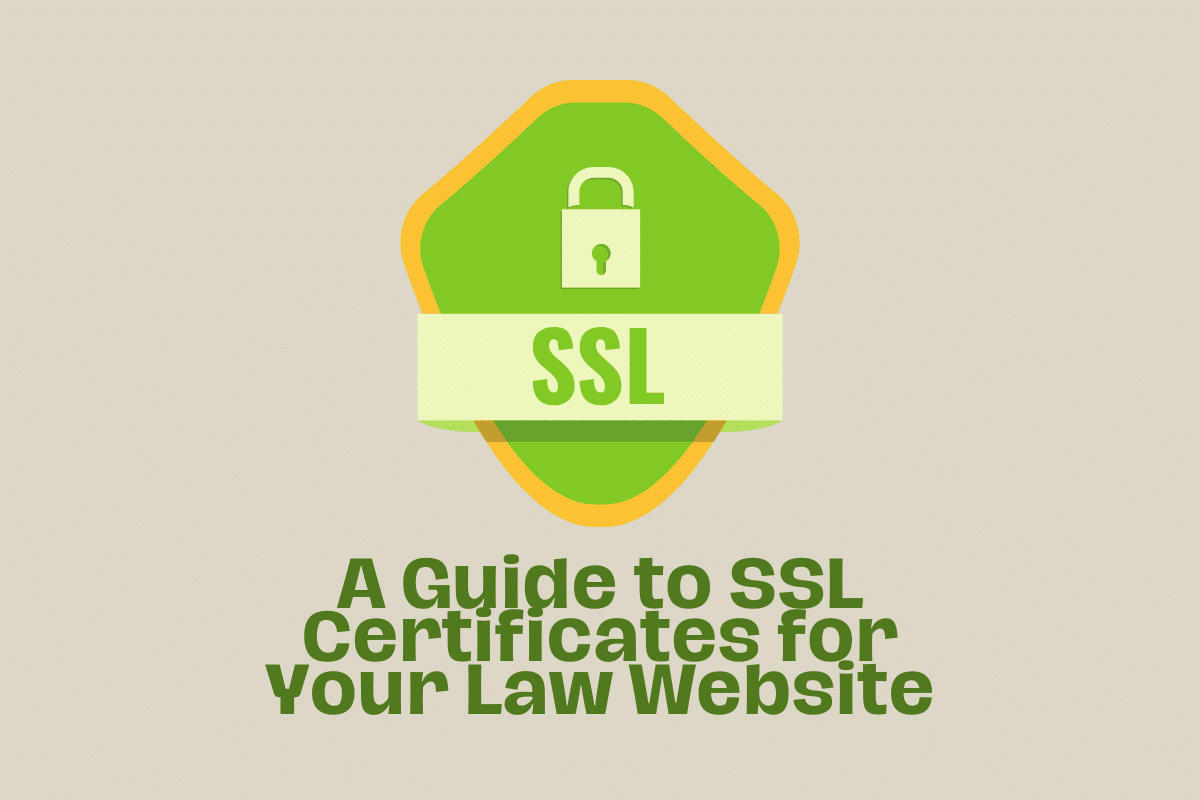An SSL (Secure Sockets Layer) certificate is a digital certificate that provides secure, encrypted communication between a user’s web browser and a web server. This encryption ensures that sensitive data, such as personal information and financial details, remains confidential and secure during transmission. SSL certificates are not only essential for the security of your law website in Santa Monica but also have numerous other benefits.
How an SSL Certificate Works
1. Authentication
SSL certificates are issued by trusted Certificate Authorities (CAs). When a user accesses a law website with an SSL certificate, the browser verifies the authenticity of the certificate. This ensures that the website is who it claims to be.
2. Data Encryption
Once the certificate is verified, a secure connection is established. All data that is transferred between the user’s browser and the web server is encrypted. This encryption makes it extremely difficult for hackers to intercept and decipher the data.
3. Data Integrity
SSL certificates also provide data integrity. Any data transmitted between the user and the server cannot be tampered with or altered in transit. If any changes are made to the data, the connection is disrupted.
How SSL Certificates are Useful
Now, let’s explore why SSL certificates are helpful for your law website:
1. Data Security
For a law website, data security is paramount. SSL ensures that all communications between your website and visitors are encrypted and secure. This is especially important when handling sensitive legal information, client details, or financial transactions.
2. Trust and Credibility
Websites with SSL certificates display a padlock icon in the browser’s address bar and use “https” instead of “http” in the URL. These visual indicators reassure visitors that your website is legitimate and their data is protected. Building trust is critical for law firms.
3. Legal Requirements
Depending on your jurisdiction, there may be legal requirements for handling client data and ensuring its security. An SSL certificate can help you comply with these regulations, preventing legal issues.
4. SEO Benefits
Search engines like Google consider SSL as a ranking factor. Websites with SSL certificates tend to rank higher in search results. Improving your SEO can increase your online visibility and attract more potential clients.
5. Enhanced User Experience
Users are becoming increasingly aware of online security. When they see the padlock icon, they feel safer browsing your website. This leads to a better user experience, and visitors are more likely to remain and explore your legal services.
6. Secure Online Transactions
If your law firm handles payments or online transactions, an SSL certificate is essential. It ensures that payment information is protected and instills confidence in clients concerned about the security of online payments.
7. Protection from Cyberattacks
SSL certificates protect against common cyber threats such as man-in-the-middle attacks, data breaches, and eavesdropping. These threats could have severe consequences if sensitive legal information is compromised.
8. Prevention of Phishing
SSL certificates help prevent phishing attacks. Cybercriminals often create fake websites that imitate legitimate ones to steal user data. An SSL certificate helps users distinguish between genuine and fraudulent websites.
9. Mobile Compatibility
With the increasing use of mobile devices, your law website must be compatible with these platforms. SSL ensures mobile users can securely access your website and interact with your legal services.
10. Compliance with GDPR and Other Privacy Regulations
If your law firm handles cases involving privacy and data protection, having an SSL certificate is crucial to demonstrate your commitment to data security and comply with privacy regulations like GDPR.
Conclusion
In summary, an SSL certificate is a fundamental tool for securing your law website, safeguarding sensitive data, building trust with visitors, and enhancing your online presence. It’s not only a security measure but also a practical and legal requirement for any law firm operating in the digital age. The benefits it offers far outweigh the cost and effort of implementation.



